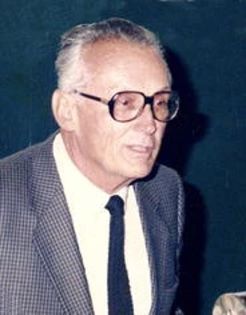The Walter Marget Workshop (WMW) is over 2 half-days for trainees held every year in the days leading upto the ESPID Annual Meeting. The workshop is dedicated to the memory of Professor Walter Marget (1920-2013), who was a founding member of ESPID (1983). Professor Marget was a renowned paediatric infectious diseases clinician at the University Hospitals of Freiburg, Tubingen and Munich and was an influential mentor for many young paediatricians.

Thanks to all who attended the 26th Walter Marget Workshop (WMW) 2024 on Monday 20th and Tuesday 21st May 2024. A survey was sent to you all who attended and then an attendance certificate was forwarded to all of those who completed the survey.
The 27th Walter Marget Workshop (WMW) 2025 will take place:
Date: Monday 26th & Tuesday 27th May 2025
Venue: Bucharest, Romania
Why should I attend the WMW?
This clinically-oriented educational workshop focuses on the diagnosis and management of infectious diseases in children. There are four talks by well-known experts, as well as small-group interactive case discussions with close interactions between trainees and faculty.
Who is eligible to participate in the WMW?
Participation in the WMW is limited to a maximum of 50 pre-selected registered trainees. Themes for the workshop are posted in advance (see below) and trainees are invited to submit, in advance, an abstract of a case that they wish to present. The best 16 cases submitted will be selected for presentation at the meeting and prizes/certificates are awarded for the best clinical presentations.
In case of over-registration for the workshop, the following priorities for a place have been set:
1. Quality of the abstract submitted
2. ESPID members who are in training
3. 1st time attendance
4. Balance of trainees to ensure representation of different countries
5. Age less than 40 years
Reimbursement of trainees
Faculty
How do I apply?
What are the topics for WMW this year?
The four topics to be chosen for the WMW 2025 in Bucharest are -
1. Time: you will only be allowed to speak for a maximum 8 minutes to allow enough time for interruptions/questions and discussion (each case is allocated 15 minutes in total)
2. Number of slides: maximum 8 slides (extra slides for educational images allowed)
3. Structure:
o Clinical presentation (history, examination & initial investigations): 1-4 slides
o Differential diagnosis: 1 slide
o Further investigations & final diagnosis: 1 slide
o Management and outcome: 1 slide
o Discussion (brief literature review & learning points): 1 slide
4. General tips on doing an effective WMW case presentation:
o Try to be as interactive as possible and ask questions to the audience before revealing diagnosis and management.
o Please incorporate at least 2 questions for the audience in your presentation.
o These questions should appear at the end of the slide, below the necessary clinical information to allow the audience to review the facts and think. Useful to be able to see investigation results with normal ranges as appropriate.
o Do not read out your slides. Best to keep text on slides brief, and use only as a prompt to keep the audience focused on what you are saying. This means you need to practice your talk (which will also help you ensure that you only speak for 8 minutes or less)
Don't delay, submit your application before the deadline here.